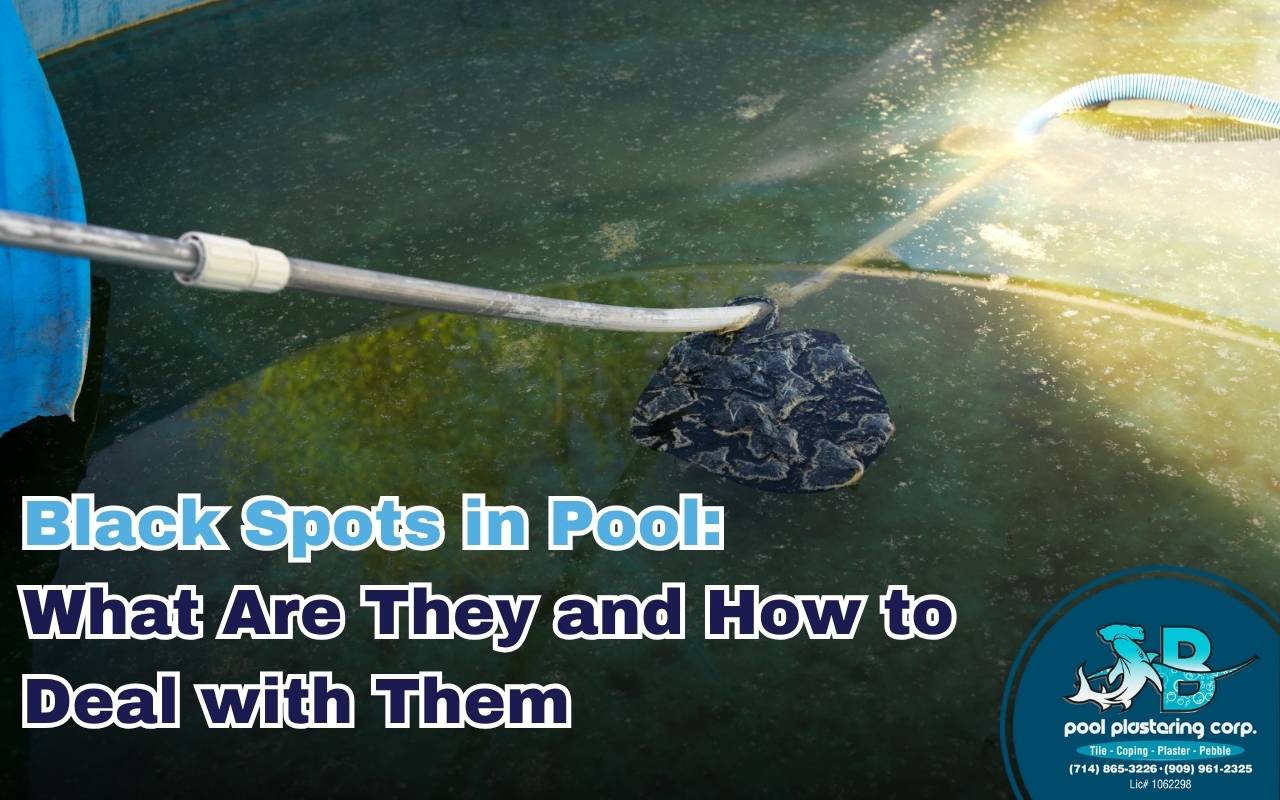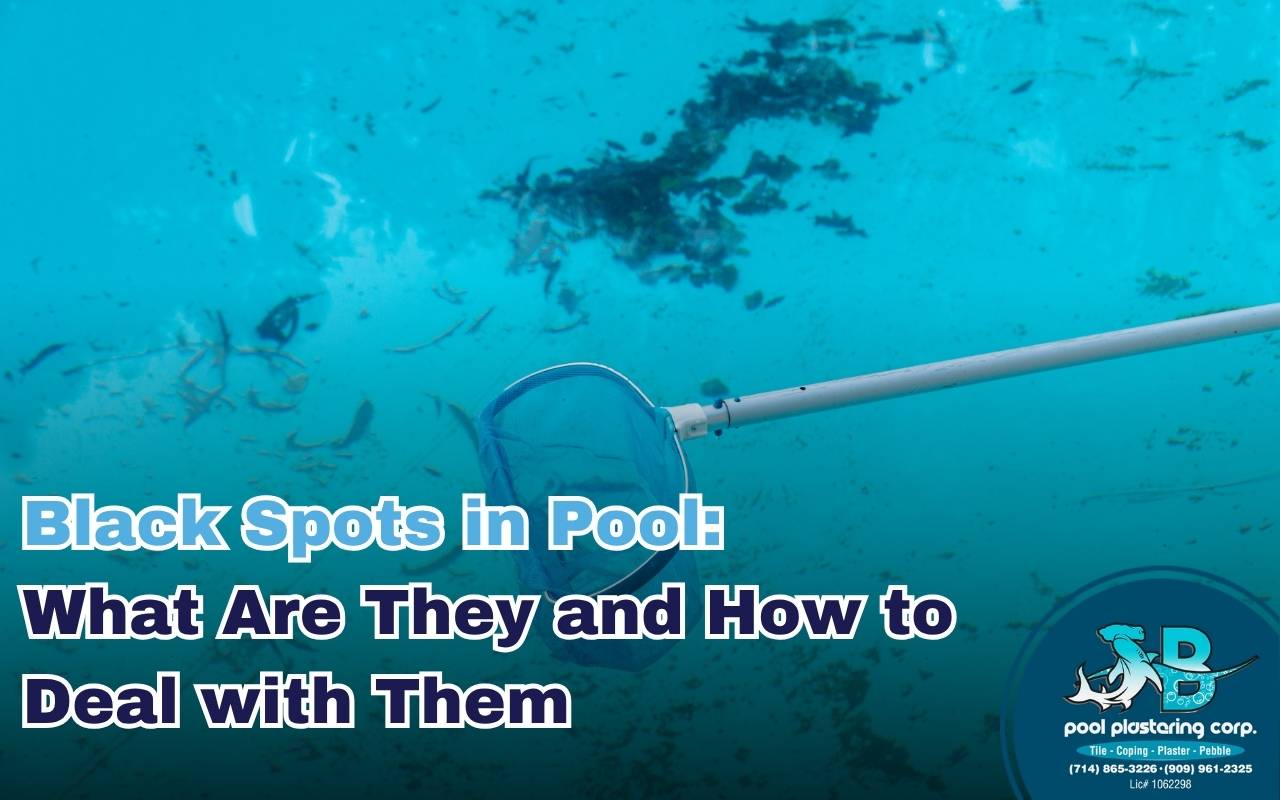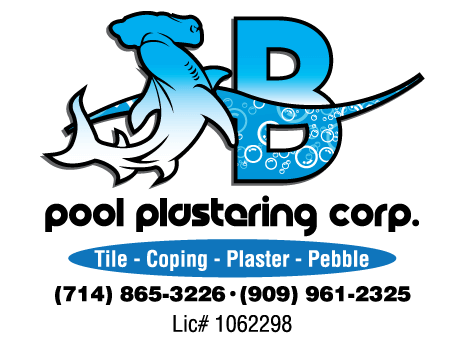
Black Spots in Pool: What Are They and How to Deal with Them
Noticed stubborn dark marks on your pool’s surface? If you’re dealing with black spots in pool surfaces, it could be more than just surface dirt. These marks are often signs of black algae growth, which can be difficult to remove and harmful to your swimming pool’s long-term health.
At JB Pool Plastering, we’ve helped homeowners tackle black algae using the right balance of cleaning, chemistry, and filtration. Here’s everything you need to know about identifying and removing these spots before they take over your pool.
What Causes Black Spots in Pools?
Black spots typically come from a type of algae that grows deep into pool surfaces. Unlike green or yellow algae, black algae in your pool forms protective layers and roots itself into plaster, making it much harder to eliminate.
Where Does It Come From?
Often, this algae enters your pool through pool toys, swimwear, or debris that’s been exposed to a natural body of water. Once it settles, it thrives in poorly maintained water with unbalanced pool chemistry.
Why Is It Hard to Kill?
Black algae forms deep roots that embed into your pool surface. Even when it looks like it’s gone, it can quickly return if not fully treated. That’s why it’s essential to use a strategic cleaning approach and maintain chlorine levels properly.
How to Remove Black Algae from Your Swimming Pool

Black algae won’t go away with simple brushing. Here’s what you need to do to get rid of it effectively.
Step 1: Test Your Water First
Use a reliable test kit to check chlorine levels and pH. Your pH should be between 7.4 and 7.6 for chlorine to work properly. If your levels are off, adjust accordingly before proceeding.
Step 2: Scrub and Shock the Pool
Use a steel-bristled brush to aggressively scrub the black spots. Then, shock your pool with enough chlorine for the volume, typically one pound per 10,000 gallons of water. Be sure to run your pool filter for at least 24 hours after shocking.
Step 3: Follow Up with Consistent Chlorination
Continue using chlorine tablets in your skimmer or floater to maintain sanitization. Preventing regrowth is just as important as killing the initial algae bloom. For persistent issues, see our guide on how to remove algae from pool walls.
How to Prevent Black Algae from Returning
Regular pool care is your best defense. Here’s what you can do to keep black algae from coming back:
- Rinse swimwear and pool toys before use
- Brush and vacuum your pool weekly
- Keep chlorine levels consistent with a test kit
- Run your pool filter daily to circulate chemicals
- Avoid swimming in algae-contaminated natural water before pool use
If you’re noticing cloudy or green water, check out our tips on why your pool is green or how to clear cloudy pool water to stay on top of your pool’s health.
FAQs – Black Spots in Pool
- What’s the difference between black algae and dirt?
Black algae is slimy, has a thick head, and grows back quickly after scrubbing. Dirt rinses off easily and doesn’t spread.
- Can black algae make swimmers sick?
While it’s not always harmful on its own, it creates an unsanitary environment by weakening chlorine’s effectiveness. It’s best to remove it quickly.
- Is it safe to swim with black spots in the pool?
It’s not recommended. Black algae signal poor sanitation, which could make your pool unsafe. Always treat it before using the pool again.
If you’re unsure how to treat black algae or need expert help restoring your pool water, JB Pool Plastering is just a call away. We’ll make sure your pool is clean, clear, and safe for your family.
Need Help with Black Algae Removal?
Don’t let black algae take over your pool. JB Pool Plastering can help you clean, resurface, and prevent future black spots with expert pool care services. From chemical balancing to long-term surface protection, we’re here to make your pool safe, clean, and ready to enjoy.
Contact JB Pool Plastering today for professional advice and dependable pool treatment solutions.




